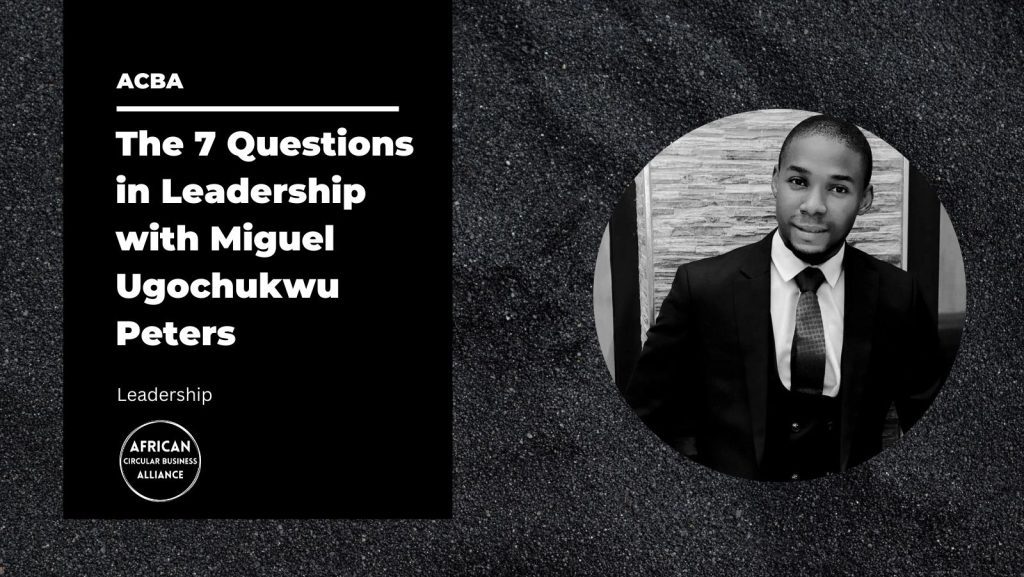
At its core, leadership is the art of weaving a compelling narrative that inspires and guides a diverse team toward a shared destination. It’s not about mere directives and rigid hierarchies but a dynamic dance of collaboration, empathy, and resilience. Imagine a journey through uncharted waters, where a leader is not just the navigator but the storyteller, casting a vision that ignites passion and purpose in each team member. It’s about fostering a sense of mutual trust and friendship, where every voice contributes to the harmonious melody of progress.
In recognizing the profound humanity embedded in leadership, our CEO, Miguel Peters has chosen to share this journey titled “The 7 Questions in Leadership” not as a monologue of achievements but as a story of growth, challenges, and shared victories. This isn’t a tale of unattainable feats but a genuine exploration of what leading with authenticity and compassion means. By opening the pages of this narrative, our CEO aims to demystify leadership, making it accessible and relatable to every member of our organisational family and aspiring leaders out there in the world.
Presented here are the insightful responses from our CEO to The 7 Leadership Questions.
1. What have you found most challenging as a leader?
As the CEO of the African Circular Business Alliance (ACBA), one of the most challenging aspects of my leadership role has been navigating the complexities inherent in fostering the widespread adoption of circular business practices across diverse markets. Implementing circular economy principles requires not only a deep understanding of the environmental and economic dynamics but also the ability to navigate regulatory landscapes, varying levels of awareness, and differing levels of readiness within the business community.
Effectively communicating the benefits of circularity and overcoming resistance to change has been another significant challenge. Encouraging stakeholders to embrace sustainable and circular business models often involves reshaping long-standing practices, which can be met with scepticism and apprehension. Striking a balance between innovation and practicality, while ensuring the alignment of these principles with the unique needs of various sectors and communities, has been a continuous and demanding aspect of my leadership journey.
Additionally, fostering collaboration and building partnerships across diverse entities has presented its own set of challenges as well as bringing together stakeholders with varying priorities, interests, and levels of commitment that require diplomacy, strategic negotiation, and a persistent commitment to a shared vision.
2. How did you become a leader? Can you please briefly tell the story?
My journey to becoming a leader in the field of cleantech and circular business began with a passion for sustainability and a commitment to addressing environmental challenges. I initially entered the professional landscape in a role aligned with my academic background in accounting and finance, as well as my professional skillset in software development.
Early in my career, I actively sought opportunities to work on projects that integrated sustainability, impact investments and finance, circular advocacy and clean technology into business strategies. Whether it was through advising companies on environmentally friendly practices or contributing to climate and circular economy initiatives, I consistently demonstrated a dedication to advancing sustainable solutions.
My leadership journey gained momentum as I honed my skills and gradually built a reputation for translating circular economy principles into profitable business models/strategies. I seized opportunities to take on progressively challenging roles, which allowed me to further develop my expertise in cleantech integration, climate resilience and circular business practices.
Recognizing the potential impact of circular economy principles on both environmental sustainability and economic viability, I became an advocate for these concepts within the organisations I was associated with. This advocacy eventually led me to pick an interest in leadership positions where I could drive change on a larger scale.
As my career progressed, I actively sought out collaborative opportunities with like-minded individuals, organisations, and government entities. Building networks became a crucial aspect of my leadership approach, allowing me to amplify the impact of the initiatives I was involved in.
My leadership journey can be marked by a combination of passion, dedication, continuous learning, and a strategic approach to advancing sustainability within the business landscape. The role of CEO at the African Circular Business Alliance (ACBA) represents the culmination of these efforts, providing a platform to lead and inspire meaningful change toward a more circular and sustainable future.
3. How do you structure your work days from waking up to going to sleep?
My workdays are meticulously structured to maximize productivity and address the diverse responsibilities that come with leading a multinational organisation dedicated to advancing circular business practices in Africa and the world.
I typically rise early, often starting my day with a routine that includes meditation, exercise, a cold shower, and a nutritious breakfast. No checking of phones, laptops or social media at this time, as I find it disturbing, distracting or in some cases, unproductive. This early morning ritual helps set a positive tone for the day ahead, ensuring that I am physically, emotionally and mentally prepared for the challenges and opportunities that may arise.
Once at the office, my mornings are dedicated to strategic planning and high-priority tasks. I begin by reviewing key performance metrics, staying abreast of industry news, and responding to critical emails and messages. This early focus allows me to align my activities with the overarching goals of ACBA and address any urgent matters that require immediate attention.
Mid-morning through early afternoon is often reserved for meetings and collaborative sessions. Whether it’s engaging with ACBA’s leadership team, participating in industry conferences, or conducting virtual meetings with stakeholders and partners, this period is crucial for fostering communication, aligning strategies, and building relationships.
Lunch is seen not just as a break but as an opportunity for networking and informal discussions. This time allows for casual interactions with team members and partners, promoting a collaborative and inclusive work culture.
In the afternoons, I dedicate time to deep work – tackling complex challenges, developing long-term strategies, and working on initiatives that require focused attention. This could involve refining ACBA’s strategic roadmap, reviewing project developments, or engaging in research to stay ahead of emerging trends in cleantech and circular markets.
Later in the afternoon, I often allocate time for administrative tasks, including reviewing financial reports and news, monitoring project timelines, and addressing any outstanding operational matters. Clearing these tasks prepares me for a smooth transition into the evening.
To ensure a healthy work-life balance, I make a conscious effort to conclude my official workday at a reasonable hour. This time is reserved for personal commitments, family, and relaxation. However, given the nature of my job and the executive role I hold, there are instances where I need to attend evening events and meetings, participate in local or international calls, and engage in strategic planning sessions or conversations that extend beyond regular working hours.
Before retiring for the night, I take time for reflection, mentally browsing back to the activities of the day in the hope of grabbing any learning opportunity I might have missed, after which I set priorities for the following day. This helps maintain clarity and ensures that my efforts consistently contribute to the all-embracing mission of ACBA in advancing circular economy practices and sustainability in Africa and beyond.
4. What’s a recent leadership lesson you’ve learned for the first time or been reminded of?
In the ever-evolving landscape of leadership, a recent lesson that stands out is the importance of adaptability and resilience in the face of unexpected challenges. The past years have reinforced the notion that leaders must be prepared to navigate unforeseen disruptions and rapid changes.
One particular instance that brought this lesson to the forefront was the global impact of the COVID-19 pandemic. The need for swift and decisive action became evident as the situation unfolded. It reminded me that even the most well-thought-out plans can be upended by external factors beyond our control.
The key takeaway from this experience was the necessity of fostering a culture of adaptability and resilience. Leaders must encourage flexibility, innovation, and a proactive mindset among team members. This involves not only being open to change but actively seeking opportunities within challenges.
5. What’s one book that has had a profound impact on your leadership so far? Can you please briefly tell the story of how that book impacted your leadership?
One book that has had a profound impact on my leadership is “Leaders Eat Last” by Simon Sinek. This book explores the dynamics of leadership, focusing on the idea that great leaders prioritize the well-being of their teams, creating environments where individuals feel valued and motivated to contribute their best.
The concept that left a lasting impression on me was the importance of creating a “Circle of Safety” within the organisation. Sinek explains how leaders who prioritize the safety, both physical and emotional, of their team members foster a culture of trust, collaboration, and innovation.
This book has aided in my leadership approach, which includes placing a stronger emphasis on understanding the needs and concerns of my team, fostering a sense of belonging, and actively working to create an environment where everyone feels supported and valued. The notion of “Leaders Eat Last” reinforced the idea that leadership is not about personal glory but about serving and empowering others.
6. If you could only give one piece of advice to a young leader, what would you say to them?
If I could offer one piece of advice to a young leader, it would be to prioritize continuous learning and adaptability. The landscape of leadership is dynamic, and the ability to learn, grow, and adapt is crucial for success.
Leadership is a journey of ongoing development, and staying curious, open-minded, and committed to learning ensures that you can navigate the challenges and changes that come your way. Seek out opportunities for professional development, whether through formal education, mentorship, or self-directed learning.
Additionally, be open to feedback and view challenges as opportunities for growth. Embrace change and be willing to adjust your approach based on new information and evolving circumstances. The most effective leaders are those who can adapt their strategies and perspectives to meet the needs of a constantly changing world.
7. What is one meaningful story that comes to mind from your time as a leader, so far?
One particularly meaningful story from my leadership journey involves a challenging incident during a critical project undertaken by the company. As the CEO, I found myself unexpectedly involved in an accident on my way to the project meeting, resulting in hospitalisation and a prolonged recovery period.
The accident occurred at a crucial juncture in the project timeline, adding unexpected stress and uncertainty to an already complex situation. However, what unfolded in the aftermath highlighted the strength of the team and the power of collective resilience.
Despite the physical distance, my team immediately rallied together. They took on additional responsibilities, communicated transparently, and ensured that the project continued to move forward. The outpouring of support, both personally and professionally, from team members was overwhelming.
During my time in the hospital, I remained connected with the team through virtual meetings and updates. The level of dedication and determination they displayed in overcoming unforeseen challenges was truly inspiring. It became evident that the company’s success wasn’t solely dependent on any individual, but rather on the collective efforts of a motivated and cohesive team.
As I worked through my recovery, the team’s commitment remained unwavering. They demonstrated exceptional problem-solving skills, adaptability, and a genuine sense of camaraderie. This challenging period reinforced the importance of building a resilient team that can navigate adversity with grace and determination.
Upon my return to work, the project was not only back on track but had also evolved in innovative ways due to the team’s collaborative efforts during my absence. The experience served as a powerful testament to the strength of the team and their ability to rise to the occasion, turning adversity into an opportunity for growth and innovation.
